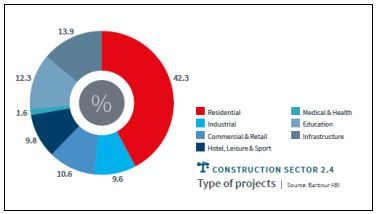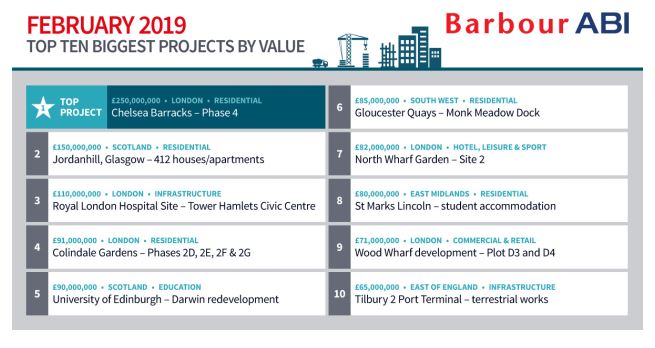New research from the National Housing Federation reveals that the Government must invest £12.8bn a year to finally end the housing crisis in England.
Over ten years, this investment would kick start a nationwide housebuilding programme of around 1.45 million social homes to rent and shared ownership properties to buy across the country. It would stimulate the economy and help more buyers to get on the housing ladder, all while ensuring that millions of people no longer get stuck in inappropriate homes or on the streets.
Now, a coalition of leading housing groups and charities is calling for the Government to make this significant investment in ending the housing crisis. This includes the National Housing Federation – which represents social landlords to six million people – Shelter, Crisis, CPRE, and the Chartered Institute of Housing.
By investing £12.8bn per year, in today’s prices, they argue that the Government would take spending levels back to those last seen under Churchill’s government in the early 1950s, when enough homes were being built to meet the country’s needs.
The coalition argues that a stimulus from the Government is the only way to solve the housing crisis, since the private market alone cannot build the quantities or types of homes the country needs.
Over the course of ten years, this Government investment would amount to £146bn, including inflation. This would cover about 44% of the total cost of this construction boom, unlocking the rest of the money which can then be raised from other sources.
The research also finds that investing in new homes would add £120bn to the economy each year, through the creation of local jobs in construction and other industries across the country. Effectively, every pound spent by the Government would generate at least £5, boosting the economy in a balanced and sustainable way.
It would also reduce the Government’s benefit bill over the course of the decade. Last year, the Government paid £22.3bn in housing benefit, a significant amount of which went into the pockets of private landlords to help cover rent for millions of low-income tenants. By moving many of these tenants into social housing, the Government would need to spend less on housing benefit over time, and so could save taxpayers tens of millions of pounds every year. This would also allow more people to build a solid foundation for their lives in social housing, aiding social mobility.
This new financial modelling is based on research, conducted by Heriot Watt University for the National Housing Federation and the homelessness charity Crisis, which showed that England needs to build 145,000 social homes every year for the next decade to both clear the current backlog of people who need a home and meet future demand.
Last year the Government spent £1.27bn on affordable housing, making housing one of the smallest government budgets, down 70% on 2010 levels. As a result, far fewer social rented homes are being built. In 2017/18, just 5,400 were built, compared to almost 36,000 in 2010/11 before funding was cut.
The chronic under-investment in housing has led to a 169% increase in rough sleeping, while the number of households in temporary accommodation is at a 10-year high. What’s more, 1.3 million children are currently living in poverty in expensive privately rented accommodation, while many young people are stuck at home with their parents, unable to build an independent life and start families of their own.
Kate Henderson, Chief Executive of the National Housing Federation, said “The housing crisis is an economic, social and human catastrophe. But it can be solved. And now, for the first time, we know exactly how much it will cost. By investing £12.8bn in affordable housing every year for the next decade, the Government can ensure millions of people have a stable and affordable place to live, at the same time as strengthening the economy across the country.
“By investing this money in affordable housing at the upcoming spending review, the Government can help families all across the country to flourish. They can help children get out of poverty, give young voters a foot up on the housing ladder and help out private renters who have to empty their bank account every month.
“As well as being the right thing to do, investing to end the housing crisis also carries huge economic benefits. It will advance the country’s productivity, boost its economic growth and lower the benefit bill over time.”
Polly Neate, chief executive of Shelter, added “The steep decline in social housing is at the core of the housing emergency that now effects so many. Social homes are what this country wants and what it needs – they are the best solution to the problems we face and an opportunity to unite the country.
“Successive governments have failed to build social housing – while homelessness spirals and half of young people will never be able to buy. Now is the time to act for the millions of people trapped in housing poverty, and invest real resources where it matters most.
“Charting a course to build a new generation of social homes must be a key test for whoever walks through the doors of Number 10. The race to eradicate homelessness and provide millions with a stable home, is a race that every politician should be trying to win.”
Jon Sparkes, chief executive of Crisis, concluded “Right now, thousands of people across England are finding themselves on the brink of homelessness or are already experiencing it, in large part because of our huge shortage of social housing.
“The good news is we know it doesn’t have to be this way – and we know why this situation must change urgently. Homelessness has devastating effects on people’s mental and physical wellbeing that no one should have to experience. This can’t go on.
“Ultimately Government must invest in the number of social homes we need. Not only will this save the country millions of pounds in the long term, it will help us end homelessness once and for all – something we can’t afford to put off any longer.”







